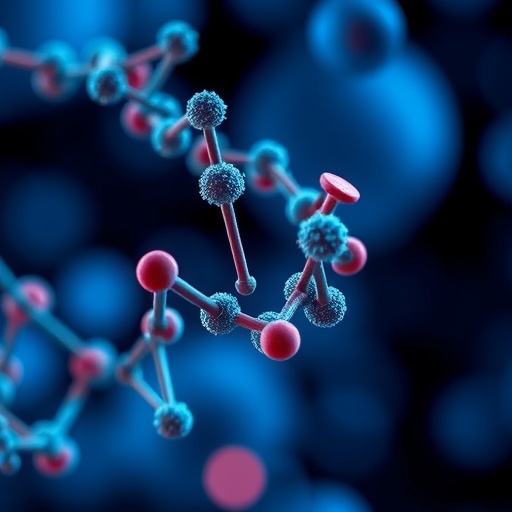In the realm of forensic medicine, accurately determining the post-mortem interval (PMI)—the time elapsed since death—remains a formidable challenge with profound implications for criminal investigations and legal proceedings. Recent advancements in molecular biology herald a transformative era in PMI estimation, offering unprecedented precision and reliability. The latest comprehensive review by He, Song, and Fu published in the International Journal of Legal Medicine (2025) consolidates cutting-edge research that leverages molecular signatures to delineate the time of death, reshaping forensic protocols worldwide.
Traditionally, PMI estimation has relied heavily on morphological and biochemical markers such as body temperature, rigor mortis, and insect colonization. While these methods provide valuable insights, their accuracy diminishes with longer post-mortem intervals and fluctuating environmental conditions. Molecular biology introduces an innovative approach that transcends these limitations by focusing on the intrinsic biochemical degradation processes occurring at the cellular and subcellular levels, which unfold predictably after death.
Central to these advances is the concept of biomolecular decay kinetics. DNA integrity, RNA stability, and protein degradation follow distinct temporal patterns, modulated by endogenous enzymatic activity and exogenous factors such as temperature and humidity. For example, the progressive fragmentation of nuclear and mitochondrial DNA occurs at quantifiable rates, allowing forensic scientists to use DNA degradation profiles as molecular clocks. Quantitative PCR techniques that measure amplification success rates and fragment length distributions are key tools employed in this arena.
Additionally, post-mortem transcriptomics—the study of RNA molecules after death—has emerged as a frontier in PMI research. Despite RNA’s notorious instability, certain transcripts degrade with remarkable regularity, reflecting tightly controlled post-mortem biochemical cascades. By analyzing decay dynamics of specific mRNA and microRNA species, forensic specialists can estimate PMI with temporal granularity previously unattainable. Advanced sequencing technologies and bioinformatic algorithms enable the conversion of complex RNA degradation data into actionable timeframes.
Proteomics, the large-scale study of proteins, offers another dimension of molecular insight. Proteins undergo systematic degradation influenced by proteases activated during autolysis and microbial invasion. Mass spectrometry-based proteomic profiling can identify time-dependent post-mortem modifications such as deamidation, oxidation, and peptide cleavage. These molecular tags paint a dynamic picture of protein decay kinetics that correlate with elapsed time since death, enabling forensic experts to infer PMI with higher confidence.
Furthermore, metabolomics—the comprehensive analysis of small molecule metabolites—complements nucleic acid and protein studies by capturing the downstream biochemical consequences of cellular demise. Metabolite concentrations in biofluids and tissues fluctuate in measurable patterns following death, reflecting metabolic shutdown and microbial activity. By integrating metabolomic data with genomic and proteomic findings, researchers are constructing multidimensional molecular signatures that robustly estimate PMI under diverse conditions.
The robustness of molecular biology approaches comes from their resilience to environmental variability, a significant advantage over conventional methods. Since molecular degradation processes are primarily governed by biochemical mechanisms, they offer internally consistent biomarkers less susceptible to external confounders. Nevertheless, researchers emphasize the importance of controlled studies to establish baseline degradation rates across different tissues and environmental contexts, enhancing universal applicability.
Innovations in analytical instrumentation and computational modeling have been instrumental in advancing PMI estimation. The development of ultra-sensitive sequencing platforms, high-resolution mass spectrometers, and robust bioinformatics frameworks enables the precise quantification and interpretation of post-mortem molecular changes. Machine learning algorithms trained on large datasets are proving invaluable in pattern recognition, predicting PMI with progressively refined accuracy.
Ethical and procedural considerations in forensic applications are also evolving alongside technological advancements. The integration of molecular data into legal investigations demands validation, standardization, and transparency to ensure evidence admissibility in court. Researchers are actively working to develop standardized protocols and guidelines that harmonize molecular PMI estimation practices internationally, fostering trust and consistency in forensic outcomes.
Moreover, the intersection of molecular biology and forensic science is fostering interdisciplinary collaboration among molecular biologists, forensic pathologists, bioinformaticians, and legal experts. This synergy accelerates the translation of laboratory discoveries into practical forensic methodologies and training programs, broadening institutional capacities to harness molecular tools effectively.
Despite remarkable progress, challenges remain in fully realizing the potential of molecular PMI estimation. Limitations such as inter-individual variability, complex environmental interactions, and the need for comprehensive molecular databases necessitate ongoing research. Future directions include exploring epigenetic markers, mitochondrial functional assays, and microbial community succession as complementary indicators of PMI, further enriching the molecular toolbox.
The transformative impact of molecular biology on PMI estimation underscores a paradigm shift in forensic medicine from reliance on circumstantial physical signs toward a molecularly anchored framework. This evolution promises to elevate investigative precision, accelerate case resolutions, and enhance judicial accuracy. As these methodologies mature, they will indubitably redefine forensic standards globally, marking a new epoch in death investigation science.
In summary, the molecular biology driven revolution in PMI estimation is an exemplar of how cutting-edge science synergizes with legal imperatives to solve longstanding mysteries of death. By decoding the molecular echoes left behind after life ceases, forensic medicine is gaining a powerful, nuanced instrument that transcends traditional constraints. The journey from cell death to courtroom certainty is becoming progressively clearer through the lens of molecules, bringing forensic medicine into the molecular age with promise and precision.
Subject of Research: Molecular biology research in the estimation of post-mortem interval (PMI) in forensic medicine.
Article Title: Molecular biology research progress in post-mortem interval (PMI) estimation in forensic medicine.
Article References:
He, T., Song, B. & Fu, J. Molecular biology research progress in post-mortem interval (PMI) estimation in forensic medicine. Int J Legal Med (2025). https://doi.org/10.1007/s00414-025-03625-9
Image Credits: AI Generated
Tags: accurate time of death estimationbiomolecular decay kineticscutting-edge forensic protocolsDNA integrity and degradationenvironmental impact on PMIforensic medicine techniqueslegal implications of PMI analysismolecular biology advancementsmolecular signatures in death determinationpost-mortem interval estimationprotein degradation analysisRNA stability in forensics





